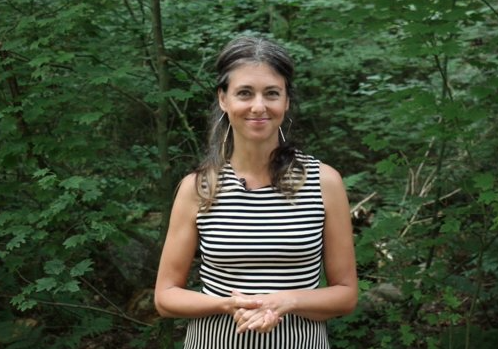
Some of you know that Jews believe the Messiah hasn’t come yet, which creates all sorts of different meanings for who Jesus was/is and basically eliminates the term, “second coming” from the Jewish lexicon. I, although Jewish, think of the Messiah more in personal terms, as the amazing miracle of our own showing up here that sets us up to transform our world through becoming ever more human.
Some of you may know that my man, Bruce, was a United Church Minister for about 28 years. He’s been dissecting traditional Christian language for his whole career, so with him coming out of what he calls an Evolutionary perspective on the Jesus lineage and my blend of approaches, including Indigenous and Jewish lineages, you can likely imagine what some of our breakfast conversations are like.
One of the most recent iterations of our ongoing dialogue took place a few mornings ago. I started thinking about the immaculate conception and wondered out loud to Bruce why a tradition would deem it necessary to have a story, a creation story if you will, that leaps over the gritty business of sex, gestation, and birth.
One of the things I love about Bruce is he’s often already wondered about similar things. He let me in on his take, that in the time and place of Jesus and that particular period of the Roman Empire, it might have been necessary to subvert Cesar by having a pivotal event happen that didn’t involve a man. When I thought about it, I agreed- what better way to reject the patriarchal oppressors of the day than to render the next big thing through a woman?
After a few more spoonfuls of quinoa, I got to thinking, hey, never mind the birth of the one being subversive, every birth is an act of subverting patriarchy! Isn’t it true that all who get on board, women and men alike, and agree to accurately witness the nature of birth’s unfolding, are irrevocably changed, and in the case of many fathers I know, have their egos killed off in the face of such great power and mystery? I’m thinking here of a natural birth process where we actually trust nature’s ways, where we can be directed by life rather than dominate it.
And then that once-in-a-season paradigm synthesizing a-ha moment happened to me. Bruce went on to explain that when Mary was told she would conceive, she started to sing a song now called, The Magnificat. Mary “magnified” creation by singing her future son’s soul’s song celebrating this little one’s life purpose!
This last bit blew my doors off because for years I’ve been taken with a story that comes out of East Africa about women hearing the song of their child before they conceive them and singing the song to everyone beginning with her husband so they can sing it together when they make love inviting the child to join them.
I love (and some would argue look for) these gem moments where Indigenous customs, ones that precede the time we separated from nature, emerge out of the mist of more recent traditions. I get this chill and misty-eyed infusion of renewed faith when lying amidst the complicated and often tattered stories of history, a relic of older times, still alive, despite the odds of it surviving, is found flickering, It lives albeit in all together different clothing, and words, but lives as a testament that maybe because of subversive acts, we still remember how to be human.
So I don’t deny my Jewish roots when I use the language of the Jesus lineage to articulate the Indigenous concept of magnifying creation, If we are the ones, each in our unique incarnation, here to bring in the future, then all of our comings are messianic. Our first coming, the light-filled journey of our conception fulfills the prophecy and nine months later, we reveal as the manifestation of its promise by being born.
Click on the link for a Tweetable: I’m all for treating birth as nature designed it. Are you? #WatchTheSahius and sign up for more @miakalef.com
This episode of the Sahius lightly touches on the body of my work in The Secret Life of Babies: How Our Prebirth and Birth Experiences Shape Our World. I mainly wish to point out that because birth is our second coming, or as I say in this episode, our second incarnational journey, we mustn’t tinker too much with it lest our arrival resemble anything less than the magnificent expectations we have for our lives.

